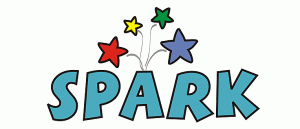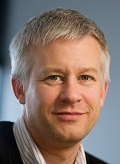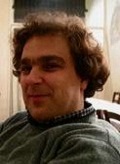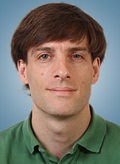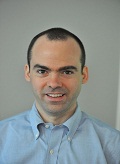Scheduling and Planning Applications woRKshop (SPARK)
Application domains that contain planning and scheduling (P&S) problems pose a combination of issues, from modelling to technological to institutional, that present challenges to the AI planning and scheduling community. New domains and real-world problems are becoming increasingly affordable for AI. The international Scheduling and Planning Applications woRKshop (SPARK) series was established to help address the gap between developments in the AI P&S community and application of these advances.
Online Proceedings (spark13-proceedings)
The SPARK workshop is scheduled on the 11th of June in the “Marco Cadoli” B2 room at the Department of Computer, Control and Management Engineering (DIAG), University of Rome “SAPIENZA”.
|
09:00-09:10 |
Welcome |
|
Session 1 |
|
| 09:10-09:35 |
Cédric Pralet, Guillaume Infantes and Gérard Verfaillie |
|
09:35-10:00 |
Dara Curran, Roman Van Der Krogt, James Little and Nic Wilson |
|
10:00-10:25 |
Minh Do, Martin Feather, David Garcia, Kenneth Hicks, Eric Huang, Dave Kluck, Ryan Mackey, Tuan Nguyen, Jami Shah, Yorgos Stylianos, Raffi Tikidjian, Serdar Uckun, Zihan Zhang and Rong Zhou |
|
10:30-11:00 |
Coffee Break |
|
Session 2 |
|
|
11:00-11:25 |
Kameshwaran Sampath, Alfiya Tezabwala and Vinayaka Pandit |
| 11:25-11:50 |
Enrico Scala, Roberto Micalizio and Pietro Torasso |
|
11:50-12:15 |
David Wilkie, Jur van den Berg, Ming Lin and Dinesh Manocha |
|
12:30-14:30 |
Lunch Break |
|
Session 3 |
|
|
14:30-14:55 |
Kimitomo Ochi, Alex Fukunaga, Chikako Kondo, Munehiko Maeda, Fumio Hasegawa and Yukihiro Kawano |
| 14:55-15:20 |
Nathan Robinson, Sheila McIlraith and David Toman |
|
15:20-15:45 |
Bob Morris, Michele Donini, Kristen Brent Venable and Matthew Johnson |
|
16:00-16:30 |
Coffee Break |
|
Session 4 |
|
| 16:30-16:55 |
Alejandro Hernandez Arauzo, Jorge Puente Peinador, Miguel A. González, Ramiro Varela and Javier Sedano |
|
16:55-17:20 |
Tony T. Tran, Mustafa K. Dogru, Ulas Ozen and Chris Beck Scheduling a Multi-Cable Electric Vehicle Charging Facility |
|
17:20-17:45 |
Anastasios Alexiadis and Ioannis Refanidis |
| 17:45-18:10 |
Jeremy Frank, Gordon Aaseng, Michael Dalal, Charles Fry, Charles Lee, Rob McCann, Sriram Narasimhan, Lilijana Spirkovska, Keith Swanson, Lui Wang, Arthur Molin and Larry Garner Integrating Planning, Execution and Diagnosis to Enable Autonomous Mission Operations |
|
18:10-18:30 |
Concluding Remarks |
List of Accepted Papers
- Tony T. Tran, Mustafa K. Dogru, Ulas Ozen and Chris Beck.
Scheduling a Multi-Cable Electric Vehicle Charging Facility - Minh Do, Martin Feather, David Garcia, Kenneth Hicks, Eric Huang, Dave Kluck, Ryan Mackey, Tuan Nguyen, Jami Shah, Yorgos Stylianos, Raffi Tikidjian, Serdar Uckun, Zihan Zhang and Rong Zhou.
Synthesizing Fractionated Spacecraft Designs as a Planning Problem - Ming Lin and Dinesh Manocha.
Adaptive Route Planning for Metropolitan-Scale Traffic - Nathan Robinson, Sheila McIlraith and David Toman.
Query Optimization Revisited: An AI Planning Perspective - Cédric Pralet, Guillaume Infantes and Gérard Verfaillie.
A generic constraint-based local search library for the management of an electromagnetic surveillance space mission - Alejandro Hernandez Arauzo, Jorge Puente Peinador, Miguel A. González, Ramiro Varela and Javier Sedano.
Dynamic Scheduling of Electric Vehicle Charging under Limited Power and Phase Balance Constraints - Jeremy Frank, Gordon Aaseng, Michael Dalal, Charles Fry, Charles Lee, Rob McCann, Sriram Narasimhan, Lilijana Spirkovska, Keith Swanson, Lui Wang, Arthur Molin and Larry Garner.
Integrating Planning, Execution and Diagnosis to Enable Autonomous Mission Operations - Kimitomo Ochi, Alex Fukunaga, Chikako Kondo, Munehiko Maeda, Fumio Hasegawa and Yukihiro Kawano.
A Steady-State Model for Automated Sequence Generation in a Robotic Assembly System - Jeremy Baxter.
Scheduling UAV Surveillance Tasks, Lessons Learnt from Trials with Users (withdrawn) - Anastasios Alexiadis and Ioannis Refanidis.
Generating Alternative Plans for Scheduling Personal Activities - Enrico Scala, Roberto Micalizio and Pietro Torasso.
Adapting Planetary Rover Plans via Action Modality Reconfiguration - Bob Morris, Michele Donini, Kristen Brent Venable and Matthew Johnson.
Designing quiet rotorcraft landing trajectories with probabilistic road maps - Dara Curran, Roman Van Der Krogt, James Little and Nic Wilson.
Compilation of Maintenance Schedules based on their Key Performance Indicators for Fast Iterative Interaction - Kameshwaran Sampath, Alfiya Tezabwala and Vinayaka Pandit.
Constraint based Berth Allocation and Ship Scheduling with Upstream Supply Planning
Call for papers
Topics and Objectives
The workshop aims to provide a stable forum on relevant topics connected to application-focused research and the deployment of P&S systems. The immediate legacy began in 2007 with the ICAPS07 Workshop on Moving Planning and Scheduling Systems into the Real World, and continued in 2008-2012 with successful yearly editions. The websites of the previous editions of the workshop series are available at http://decsai.ugr.es/~lcv/SPARK/. These workshops presented a stimulating environment where researchers could discuss the opportunity and challenges in moving P&S developments into practice, and analyze domains and problem instances under study for, or closely inspired by, real industrial/commercial deployment of P&S techniques.
This is the 7th edition of SPARK. The previous editions saw substantial attendance with respect to other collocated events (about 30+ people every year since 2007). This success, together with the new creation, this year, of the Novel Applications track make SPARK:
- The ideal incubator to test, discuss, mature and improve potential papers for that main track with the feedback of an excellent audience.
- A great place for the inception of new applications and challenges.
The challenges and discussions that emerged in the last years’ editions set the baseline for this year’s SPARK workshop. A goal of the workshop series is the definition of a longer term set of challenges that could be of benefit for the research community as well as practitioners.
During SPARK13, we will continue discussing the formation of the Special Interest Group on Application of Planning & Scheduling (SIGAPS). This is a coordinated effort on increase the visibility of the application-oriented planning and scheduling research and engineering carried out in the research community, drive initiatives into more applied and transferable research, and promote/foster a closer relationship with industry.
Authors of accepted papers will be encouraged to share their domains and instances, or parts of them, towards a library of practical benchmarking problems that could also be useful for the community.
Format
The workshop will retain the successful format of previous SPARK editions. In order to foster discussion amongst speakers and attendees, reviewers of submissions will be asked to write a public critique of each paper composed by a set of public questions or thoughts, in addition to regular private comments to the authors and confidential comments to the organizers. These critiques will also be provided to the authors in advance of the workshop and distributed among the workshop attendees.
Each session will consist of presentations of technical papers, their commentaries, and a short discussion on the topic of papers. The SPARK’13 workshop will feature a panel discussion aiming at wrapping up all the relevant issues and challenges as possible propositions for future editions of the series.
Topics
Starting from the results of the previous editions, SPARK’13 will deepen the debate on application-relevant aspects of P&S theory and practice, with the aim of reporting and discussing experiences relating to deploying P&S systems. Topics of the workshop include, but are not limited to:
- Novel domains and benchmark or challenge problems
- Experiences in deploying P&S systems, from their conception to their maturity in practice
- Comparison with previously existing technologies and/or systems
- Integration of operational knowledge from existing legacy components
- Integration of multiple sources of knowledge and reasoning schemes (actions, time, resources)
- Algorithmic and technological issues
- Mixed initiative approaches
- User interface design, visualization and explanation
- Machine learning methodologies applied to P&S systems
- Handling dynamic and uncertain sources of knowledge
- Engineering, deployment, and maintenance
- Evaluation, testing, and validation
- Plan execution and replanning
- Assessment of impact on end users
- Modelling and domain model acquisition
Submissions
Submissions may be regular papers (preferably 6 pages, although consideration will be given to papers of up to 8 pages) or short position papers (at most 2 pages). All papers should conform to the AAAI formatting guidelines and style Submissions will be reviewed by at least two referees. Interested contributors are invited to communicate their intent to submit to the workshop organizers.
Submissions, in PDF format, may be submitted via the EasyChair site:
https://www.easychair.org/conferences/?conf=spark13
All workshop participants must be registered for ICAPS’13 or one of the co-located conferences.
Important dates
Submission deadline for papers (extended): April 4th, 2013
Notification of acceptance/rejection (updated): April 28th, 2013
Camera-ready version due: TBA
Workshop Date: June 11th, 2013
Workshop Program Chairs
- Luis Castillo Vidal, IActive, Spain.
luis.castillo@iactiveit.com - Steve Chien, Jet Propulsion Laboratory, USA.
steve.chien@jpl.nasa.gov - Riccardo Rasconi, ISTC-CNR, Italy.
riccardo.rasconi@istc.cnr.it
Program Committee
- Laura Barbulescu, Carnegie Mellon University, USA
- Mark Boddy, Adventium, USA
- Luis Castillo, IActive, Spain
- Steve Chien, Artificial Intelligence Group, Jet Propulsion Laboratory, USA
- Gabriella Cortellessa, ISTC-CNR, Italy
- Minh Do, SGT Inc., NASA Ames, USA
- Patrik Haslum, NICTA, Australia
- Russell Knight, Artificial Intelligence Group, Jet Propulsion Laboratory, USA
- Jana Koehler, Hochschule Luzern, Lucerne University of Applied Sciences and Arts, Switzerland
- Nicola Policella, ESA-ESOC, Germany
- Riccardo Rasconi, ISTC-CNR, Italy
- Bernd Schattenberg, University of Ulm, Germany
- Tiago Vaquero, University of Toronto, Canada
- Ramiro Varela, Universityof Oviedo, Spain
- Gèrard Verfaillie, ONERA, France
- Neil Yorke-Smith, American University of Beirut, Lebanon, and SRI International, USA
- Terry Zimmerman, SIFT, USA



